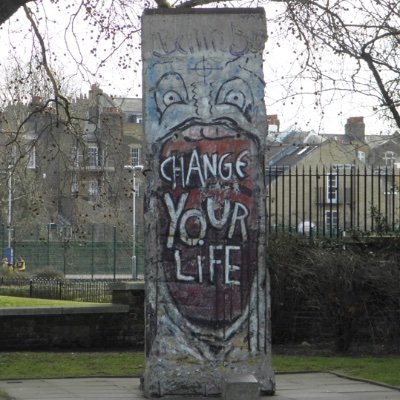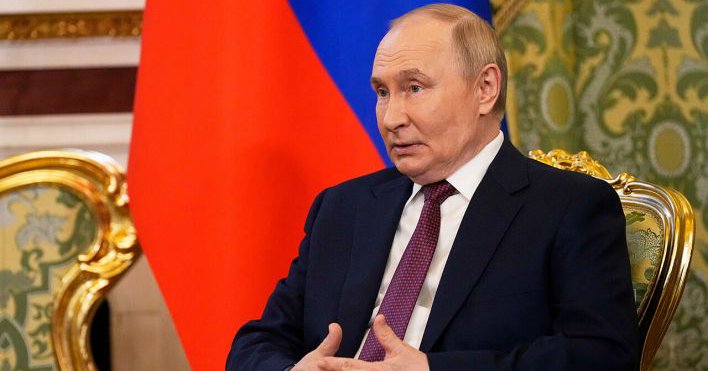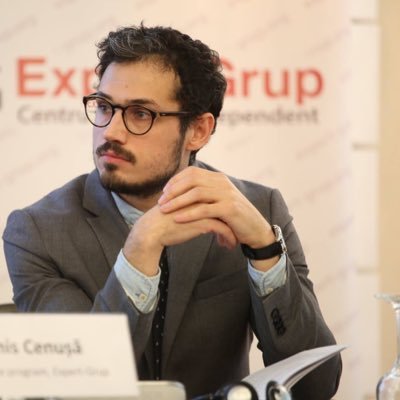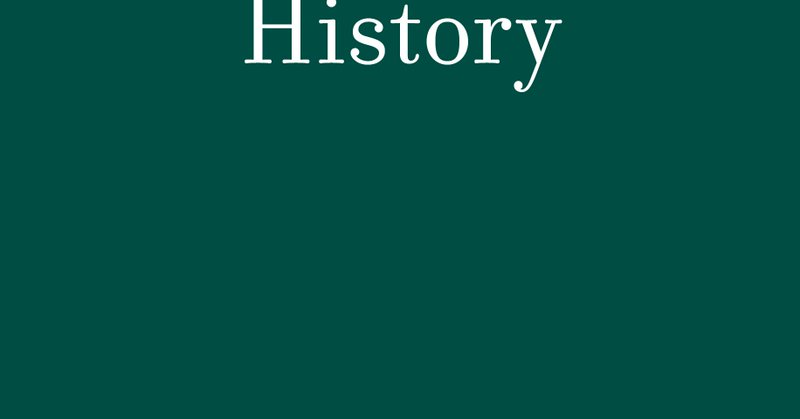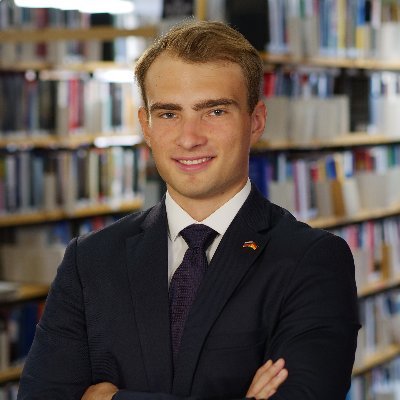
Mikhail Polianskii
@PolianskiiM
Followers
830
Following
19K
Media
55
Statuses
1K
PhD @goetheuni; Post-Doctoral Researcher at @PRIF_org at PATTERN Project. Russian Foreign Policy, Post-Soviet Space, European Security, Cold War History
Frankfurt am Main, Germany
Joined February 2012
A few days ago, @CSP_journal published our article with Jonas Driedger which summarized and discusses expert predictions vis-à-vis Russia's actions in Ukraine. Here's a short 🧵to distill the core insights of a study 🌐 #SecurityStudies #RussiaUkraine
Before the Russian invasion of Ukraine, many forecasted that exactly this would not occur. Why❓ Jonas Driedger& @PolianskiiM argue that experts missed Russia’s increasing acceptance of risks and got Ukrainian +Western views& policies wrong 👉 https://t.co/uTlgxYKJdW
1
3
15
I have a new piece with @theguardianfeed where I look into the history of aerial confrontations going back to the Cold War. I argue that intruding Russian aircraft must be shot down as a prophylactic measure. There will not be a nuclear war.
Russia’s provocations are menacing Nato. The cold war shows how it needs to respond | Sergey Radchenko https://t.co/pHnKJ2ewVY
2
11
28
Putin suggests that the Alaska summit can become the first step towards the new strategic arms control negotiations.
⚡️ Президент России В.В.Путин в ходе совещания о подготовке российско-американской встречи в Анкоридже: 💬 Сегодняшняя американская администрация предпринимает достаточно энергичные и искренние усилия для того, чтобы создать долгосрочные условия мира. https://t.co/AzcgQRY93J
0
2
2
A bit late to the party, but still worth celebrating. Honored to have been interviewed by brilliant @olivernmoody for the book "BALTIC: THE FUTURE OF EUROPE" (published in March) about Russia’s policy toward the Baltic States in the years ahead. Highly recommend this timely read!
Publication day! BALTIC: THE FUTURE OF EUROPE is now available in UK bookshops (and even Dussmann in Berlin). Some details on events/accompanying articles below:
2
1
7
Zeitenwende 2.0: 🇪🇺muss Rüstungsentwicklungen so ausrichten, dass sie 🇺🇸-Fähigkeiten ersetzen, argumentieren @LBumeder, @PolianskiiM et al. im Kapitel „Rüstungsdynamiken“ des @PeaceReport. 10 Empfehlungen & das Kapitel gibt’s hier: https://t.co/l92VbluhxJ c) BW | J. Dahlmann 8/10
1
1
2
Wie zukunftsfähig ist die NATO – ohne verlässliche USA? Unsere neue #Studie zeigt, wie das Bündnis auf diese Unsicherheit reagiert – ein Überblick vor dem NATO-Gipfel. 1/7 #NATO #ZukunftDerNATO #USA @moverhaus @AsliHurcan
https://t.co/dkZ8MZQwVB
2
2
9
Proud to have contributed a chapter on Ukraine to this important @FESonline new study "How future-proof is NATO"? It shows how the Transatlantic alliance is responding to new challenges ahead of the NATO Summit. Read 🇺🇦chapter and other contributions:
Wie zukunftsfähig ist die NATO – ohne verlässliche USA? Unsere neue #Studie zeigt, wie das Bündnis auf diese Unsicherheit reagiert – ein Überblick vor dem NATO-Gipfel. 1/7 #NATO #ZukunftDerNATO #USA @moverhaus @AsliHurcan
https://t.co/dkZ8MZQwVB
0
0
2
Креститься на антихриста Сталина, уничтожившего РПЦ в её изначальном виде, это конечно новый уровень богохульства даже по нынешним российским меркам
Eine neu gestaltete Moskauer Metrostation mit einem überdimensionalen Stalin wird zu einer neuen Wallstätte ganz eigener Art: Der Kreml tut alles dafür, damit die Gesellschaft auf Generationen hinaus in einer mörderischen Diktatur gefangen bleibt.
0
0
0
Extremely pleased that my article “Ruxit Revisited: Unravelling Russia's Dissociation From the Pan-European Security Order” is out with @GP_NextGen today! Go take a look if you’re interested in 🇷🇺Foreign Policy, European security&dissociation from IOs. OA: https://t.co/jbqKGcZSXE
0
0
1
Putins angekündigte Feuerpause zum 9. Mai ist historisch aufgeladen und politisch kalkuliert. Symbolik statt Substanz: Bereits in der Nacht selbst gebrochen, propagandistisch nach innen & außen inszeniert. Meine Einordnung im @rbb24 Hintergrund: https://t.co/vSgxA6uaMp
radioeins.de
In Russland soll es am 9. Mai anlässlich des Endes des zweiten Weltkrieges vor 80 Jahren eine große Militärparade geben. Moskau hat rund um die Feierlichkeiten eine dreitägige Feuerpause vorgeschla...
0
0
0
My two cents on the U.S.-Ukraine Minerals Deal and prospects of a peace/ceasefire agreement in Ukraine—in context of war in Ukraine for @ndr (in German). https://t.co/o94IPZEHU8
0
0
3
1) The EU speaks of the urgency of eliminating energy dependence on Russia. The figures for 2024 show that around 18.8% of gas in the EU market is of Russian origin—a somewhat insignificant figure and by no means a dependence;⤵️
1
1
2
Honored to be the 2025 Konrad Adenauer Visiting Scholar on Transatlantic Relations with @Cen4EUStudies & @KAS_Canada! This fall I’ll be at @Carleton_U teaching “Russia & the West: Hybrid Warfare & Transatlantic Security.” Can’t wait to join @EURUSCarletonU, students & colleagues!
We are delighted to announce that Dr. Mikhail Polianskii of the Peace Research Institute Frankfurt will be the 2025 Konrad Adenauer Visiting Scholar on Transatlantic Relations! To learn more about Dr. Polianskii and his upcoming residence at Carleton visit
0
1
4
#FactFriday ➡️ Russian planned total military expenditure in 2025 is about 15.5 trillion roubles. Get more facts here 🔗 https://t.co/GpI0zdHcCB Accurate, dependable information matters more than ever. Invest in the facts. Support SIPRI: https://t.co/1ubPyBirHr
1
5
8
In meinem Gastkommentar in @Handelsblatt zeige ich, wie der Kreml minimale Zugeständnisse mit gezielten Provokationen kombiniert – um den Westen zu spalten, sein Image im Globalen Süden aufzupolieren, militärische Vorteile zu sichern und die innenpolitische Lage zu stabilisieren.
1
0
0
These findings emphasize that nuclear conflicts are not solely decided by military might but also by strategic signalling, leadership perceptions, and the availability of face-saving compromises. Read the full article online:
brill.com
Abstract Why did the Soviet Union and the United States refrain from using nuclear weapons during Cold War crises, and what can we learn from their restraint in navigating today’s confrontation...
0
0
0
Third, although nuclear arms control agreements can be fragile, they have historically played a stabilizing role in great power competition, reducing risks of miscalculation and contributing to a more secure international environment /4
1
0
0
Second, diplomacy is vital. The study highlights that backchannel negotiations can serve as crucial off-ramps during nuclear standoffs, providing adversaries with avenues to de-escalate tensions and prevent uncontrolled escalation /3
1
0
0
We distill three key lessons from historical nuclear standoffs, particularly from Berlin and Cuban missile crises. First, effective crisis management hinges on maintaining a delicate balance between deterrence and restraint—demonstrating strength without triggering escalation /2
1
0
0











